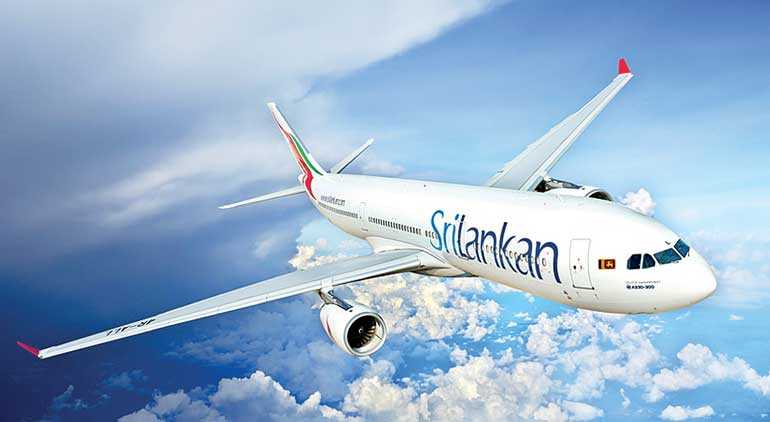Saturday Feb 21, 2026
Saturday Feb 21, 2026
Wednesday, 13 November 2019 02:04 - - {{hitsCtrl.values.hits}}

Latest annual report lists outstanding loans of $ 704 m, negative equity of Rs. 132 b
Group records operating loss of Rs. 10.3 b, up from Rs. 7.4 b in 2017
State banks issued $ 50 m in letters of comfort to obtain short-term loan facilities by Govt.
Chairman warns fresh equity needed to take legacy debt off balance sheet
Says formal undertaking made by Govt. to financially support UL until restructuring concludes
By Chandani Kirinde
SriLankan Airlines continued its turbulent run in 2018, racking up losses of Rs. 17.21 billion and outstanding loans of Rs. 126.7 billion, with the running of the national carrier continuing to be financed through bank borrowings, secured by comfort letters issued by the Government, according to the embattled airline’s latest annual report which was presented to Parliament on Monday.
“The airline has been reporting losses since Emirates withdrew from managing the airline in the year 2008. The company’s losses for the year ended 31 March 2018 stood at Rs. 17.21 billion,” said the report presented to Parliament by Chief Government Whip Gayantha Karunatileka.
“The company’s balance outstanding loans amounted to $ 704 million (Rs. 126.7 billion) as at 31 March 2018 while the balance sheet carried a negative equity to the extent of Rs. 132 billion,” the report revealed.
The group had also recorded an increase in operating loss of Rs. 10,395.22 million for the financial year ended 31 March 2018 compared to a Rs. 7,489.82 million deficit in the previous financial year.
SriLankan Airlines Chairman G.S. Withanage said in the report that when the Government, which is the company’s majority shareholder, owning more than 90% of shares, appointed the new Board in April this year, the company was an unviable entity within the definitions set out by Sections 219 and 220 of the Companies Act.
“The only fact that mitigated such a conclusion was the commitment of the Government to support the restructuring of the airline and the formal undertaking given to support SLA financially until the restructuring concluded,” he noted.
The report said the Government had approved the issuance of new letters of comfort to the value of $ 50 million to State banks in order to obtain short-term loan facilities during the year under review and, by way of Cabinet approval on 5 February 2019, confirmed it would continue to extend the required financial support to the company to continue its operations as ‘going concern’ until the implementation of the proposed restructuring process was complete.
The report said that measures for the financial recovery and future sustainability of the airline were underway, aided by the strategic initiatives which are being put in place as key elements of the restructuring plan. As part of this plan, the group will intensify its focus on cost management, revisit its revenue optimisation strategies and challenge the status quo to identify more viable options to strengthen its competitive position in the market.
The airline’s Chairman said that the first priority of the Board after assuming office was to establish a good governance framework within the organisation and this was done through an open dialogue with all stakeholders and by identifying and recruiting credible individuals with experience in aviation.
He said that while the balance sheet had to be restructured by removing legacy debts, for which fresh equity infusion was needed, the mere infusion of capital would not result in a turnaround of the airline’s fortunes, unless the business model of the airline was reinvented.
He said that this would require drastic changes, such as making changes to the current network, optimising the usage of aircraft, minimising costs and implementing the technological advancements required to bring the cost down in order to stay ahead of the competition.
“The Board and the management recently concluded a strategic planning exercise to set the future strategic direction of the airline and the implementation of initiatives in the business plan will provide the solution to shortcomings in the current business model,” the report read.
It added that the turnaround of the airline could not be achieved unless there were sacrifices made by all stakeholders and the Board set an example by volunteering not to draw any remuneration or enjoy any of the perks that accompanied their respective office, until the airline recorded an operating profit while the senior management staff too had volunteered to sacrifice this year’s earned increment in the same spirit.
“In financial terms, these may not add up to make a significant difference to the bottom line. However, it is a gesture of the resolve within the organisation to make a change,” the report added.